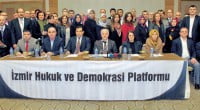Hizmet movement and government

Date posted: June 16, 2012
Yavuz Baydar June 14, 2012
Is it the movement attacking the government, or vice versa? Some believe that it is, some hope that it is, some deny that it is and many others feel deeply concerned that it is.
I tend to belong to the latter camp. It is undeniable that the Hizmet movement (aka Gulen movement) is at odds with the top echelons of the Justice and Development Party (AKP) government, which is seen as a growing rift over vital issues, and it rings alarm bells for Turkey — and its aspirations for taking the leap into becoming a stable, predictable, reliable, free and prosperous country.
The row, which started brewing soon after the AKP’s victory, has to do with the critical issue of how to deal with solid political power. The entire decade of AKP rule was marked by rather firm political support from a de facto “alliance of reformists,” which included the Hizmet — Gülen — movement, (social) liberals, leftists, moderate right, many Alawites, Kurds and non-Muslims.
The hopes of the alliance did not wane; on the contrary, they manifested as a powerful “reset” in the last referendum on constitutional amendments. They were also demonstrated powerfully in the engagement for drafting the new constitution. Surveys constantly show high expectations for democratization. The AKP’s leadership, in steady contact with opinion polls, is not unaware of this.
This is an agenda that includes an element of morality, as well as a political change. The Hizmet movement, without a doubt the largest, best functioning NGO network in Turkey, has been on the forefront of monitoring the “morality” part of it, based on the wisdom that without leaving behind the old, “corrupt” morality, which was identified with the rigid guardians of the republic, a disease that was the product of the tutelage, Turkey would not be able to renew itself.
The “delivery” since the elections has slowed down, and in particular the Kurdish issue and Kurdistan Workers’ Party (PKK) violence have risen before the government, which has been increasingly inclined towards conformism and arbitrariness. The collective decision-making process has given way to a one-man government and tiresome micro-management. Many critical issues that have to with morality (such as the match-fixing case) were not handled properly, causing a mess, and many other issues, showing signs of “Kulturkampf” (such as abortion), raised eyebrows within the alliance.
The movement’s critical stance towards the government has become stronger, more vocal, more articulate. This is a healthy sign, becoming of a powerful NGO. Indeed, the voices emanating from within reflect the hope and discontent in deep Anatolia and Thrace, with completion of transformation in accordance with the EU norms and the national dialogue as the real base.
This critical stance should continue as a persistent political and moral compass; it will be needed more in the future. Yet the movement also has to grapple with some justified criticism of itself. The upper echelons of the AKP are not monolithic (as the debate over the Kurds shows) and some views on the movement from that source should be taken carefully, gently and seriously.
We all know the movement has been subjected to massive demonization, and the enemies of democracy now apparently believe they have found the right moment to “shoot at it over the shoulders of the AKP.” Turkey’s biggest problems are human rights and justice. It left its image as the land of torture behind long ago, but the running of its political trials, which all have something to do with confronting the nation’s dark past, has generated serious problems.
This also relates to the way the movement chooses to view certain aspects. While it was obvious from the very beginning that these cases were to define Turkey’s path to normality, the movement lacked consistency in its critical position to monitor shortcomings and procedural failures, often missing the big picture.
Cases like Şener and Şık, Zarakolu and Ersanlı, and thousands of elected local Kurdish politicians linked with the Kurdistan Communities Union (KCK) are still testing its democratic spirit and respect for freedoms. The KCK case shows how wrongheaded and destructive things can be. The KCK prosecutors’ upside-down methodology should be severely criticized instead of meeting with applause.
Another test has been to what extent and with what intent special prosecutors and courts would use their powers. Even in cases — such as that of the National Intelligence Organization (MİT) — that meant an intrusion into executive powers the movement failed to display its nuanced, critical stand. It turned into a primitive power game.
The rift must end. At least, it should be prevented from further escalation. The country is in a critical phase, its reform process incomplete. With recent movement on the Kurdish issue, such as a rapprochement between the AKP and the Republican People’s Party (CHP) with the promise of a national consensus, marginalizing ultra-nationalism, support is crucial.
Wisdom also tells us that any government that runs into arbitrary behavior fades away, sooner or later. But the largest NGO’s task remains the same: taking each item issue by issue, weighing them on a moral scale, pushing the reform agenda — and staying away from hiding what is wrong.
Source: Today’s Zaman http://www.todayszaman.com/columnist-283569-movement-and-government.html
Tags: Hizmet (Gulen) movement | Hizmet and politics | Turkey |
























